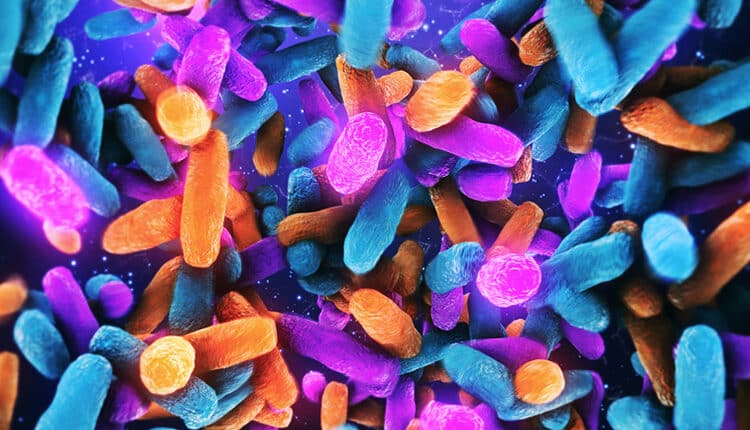 nopparit / iStock / Getty Images Plus
nopparit / iStock / Getty Images Plus
Relationship Between the Microbiome and Aging Explored
We continue to gain insights into the microbiome and how it works as the human body changes.
Research to understand how changes in the microbiome are associated with aging and other developments in humans is ongoing. The microbiome comprises an ecosystem of trillions of microorganisms (such as fungi, bacteria, and viruses) in and on the human body. Common areas of study include the gastrointestinal tract (gut), oral cavity, and skin microbiomes.
Although the microbiome is composed of beneficial microbial colonizers, dysbiosis, or the loss of their influence, can result in an imbalance through an accumulation of pathogens. This is thought to lead to an inflammatory response associated with disease.
SKIN IN THE GAME
In a recent study of how the gut, oral, and skin microbiomes are associated with aging, researchers at the University of Connecticut’s UCONN Health, working in conjunction with the Jackson Laboratory, based in Farmington, found that frailty had a much more significant bearing on changes in the microbiome in general than chronological age. Likewise, they also determined the skin microbiome to be the most consequential player in infection risk associated with frailty.1
The researchers reported prominent changes in microbiome features associated with susceptibility to pathogen colonization and disease risk, which they linked to a loss of Cutibacterium acnes in the skin microbiome. C. acnes can inhibit staphylococci colonization and infection. In fact, skin was found to be a primary reservoir for healthcare-associated pathogens, including multidrug-resistant organisms. This, they speculate, might be due to the fact that skin is more readily exposed to environmental risks than the gut or oral cavity.1
MICROBIOME INTERACTION
Other contemporary research has focused on the association between aging and interconnectedness of the skin, gut, and oral microbiomes. In fact, many see the various microbiomes as closely linked in regard to aging-related changes. For instance, in a recent review of the literature discussing the bidirectional relationship between the gut microbiome and aging, the authors note that in one study oral bacteria were found to contribute significantly to bacterial diversification and alteration in the older skins. Likewise, the oral microbiome has been shown to affect the gut microbiome and vice versa.2
The authors suggest that a comprehensive analysis of different microbiomes and how they interact with each other, would be fundamental in deciphering causal functions of the microbiome on host health and longevity.
MITIGATION
Information gained from microbiome study may be helpful in designing targeted therapies. Microbiomes themselves can serve as warning systems for age-related decline. This could be useful considering that aging-related problems are often compounded by multiple aging-related comorbidities as well as the medications older adults might take to address them, and adverse drug reactions.
Regardless of whether it is the skin, gut, or mouth involved in potential health issues, self-care would seem an important strategy to employ against microbiome dysbiosis. In fact, one recent study found that adult oral microbiomes were most impacted by proper oral health habits such as flossing tooth and tongue brushing to decrease destructive microbes.3
REFERENCES
- Larson PJ, Zhou W, Santiago A,et al. Associations of the skin, oral and gut microbiome with aging, frailty and infection risk reservoirs in older adults. Nat Aging. 2022;2:941–955.
- Burcham ZM, Garneau NL, Comstock SS,et al. Patterns of oral microbiota diversity in adults and children: a crowdsourced population study. Sci Rep. 2020;10:2133.
- Kim M, Benayoun BA. The microbiome: an emerging key player in aging and longevity. Transl Med Aging. 2020;4:103–116.

